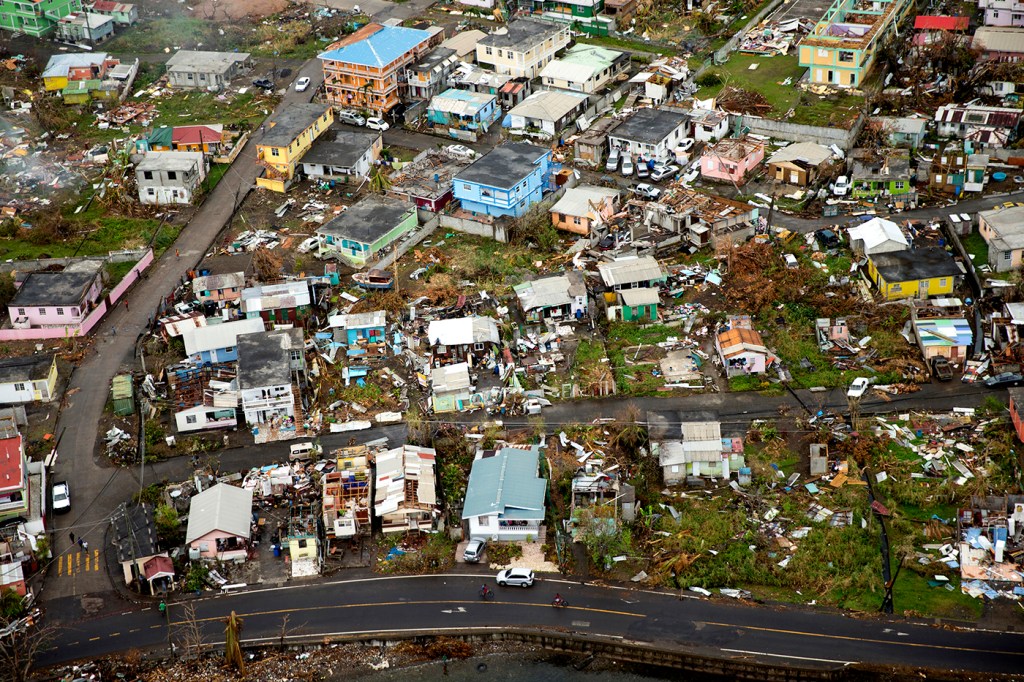How Northeastern is helping Caribbean communities combat climate change and extreme weather

Islands in the Caribbean are particularly susceptible to the effects of rising sea levels, hurricanes and even volcanic eruptions.
With the help of a $1 million federal grant, Northeastern University is partnering with three communities in Barbados and Dominica over the next two years to develop plans to respond to climate change and extreme weather events.
The partnerships will enlist the help of community residents—including leaders and the underserved—as well as higher education officials in the Caribbean to design projects based on local needs, says Northeastern professor and grant recipient Stephen E. Flynn, founding director of the university’s Global Resilience Institute.
The grant awarded by the United States Agency for International Development goes into effect July 1. The goal is to address locations where the impact of climate change is most urgent and to eventually scale the lessons learned across other small island states in the Caribbean and Pacific regions. Lessons learned can also be applied to mainland societies in North America and Europe, Flynn says.
“The Caribbean Islands are essentially a microcosm of the challenges we’re all facing” in terms of climate change, Flynn says. “They also face the most extreme vulnerability. If you’re on a small island like Dominica and a volcano goes off or a major hurricane strikes, you’re stuck.”
It’s important to involve the local community to identify which needs are greatest, what capacities are indigenous to the area and also to get local buy-in, Flynn says.
Whether the projects involve mangrove or coral reef restoration, the construction of solar panels, protecting infrastructure or boosting disaster relief responses, local voices and expertise can also identify what has worked in the past and what barriers remain, he says.
The idea is not “for a bunch of experts like me to parachute in and say, ‘Oh, you should do this,’” Flynn says. “The key here is the community is the expert on itself.”
Flynn says the Global Resilience Institute, which is partnering with the University of the West Indies’ five island campuses and the University of Hawai’i on the grant, also will work with Caribbean higher education establishments that are part of GRI’s Global Resilience Institute “to create this cross-regional effort.”
The network members include the University of Puerto Rico, the University of the Virgin Islands and island community college.
The grant will involve working with academics from different departments—engineering, environmental studies and social studies, to name a few.
It will be co-led by David Smith, director of the University of the West Indies’ Center for Environmental Management and professors Moira Zellner of Northeastern and Dan Milz at the University of Hawaii.
The federal grant will also expand opportunities for co-op students, research assistants and interns to support work in the Caribbean, says Angie Valencia, associate director of operations for the Global Resilience Institute.
It “opens the door to more international opportunities for students across Northeastern’s global network,” she says.
Northeastern officials are focusing their grant efforts on one community in Dominica and two in Barbados, which Flynn says has embraced the establishment of a blue-green economy that focuses on looking after the ocean environment and the island’s natural resources and doesn’t solely rely on tourism.
Partners include Red Cross officials in Dominica and Barbados and other Caribbean disaster relief officials.
Flynn says that once needs of the local communities are validated, Northeastern and its partners will bring in public and private funders to help underwrite the cost of getting projects off the ground.
The idea is to create models and projects that communities can sustain, Flynn says.
“We’re confident that we’re going to bring a lot of people to the table who might not normally work together on the urgent need to adapt to climate change,” Flynn says.
Cynthia McCormick Hibbert is a Northeastern Global News reporter. Email her at c.hibbert@northeastern.edu or contact her on Twitter @HibbertCynthia.






